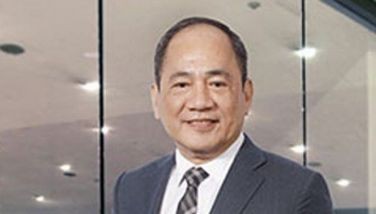Government mulls sale of 4 real estate assets in Tokyo
April 2, 2002 | 12:00am
Going through its assets with a fine-toothed comb, the government is now evaluating its options for its four remaining real estate assets in Japan, assigning Finance Secretary Jose Isidro Camacho as point-man charged with overseeing their disposition.
Camacho told reporters yesterday that government is looking at several ways to dispose of these assets while recognizing that it may not be advisable to do so at a time when the Japanese economy is in recession and opportunities are not clear.
After closing the joint-venture deal for the controversial Roponggi property. Camacho said the government still has four disposable real estate assets in Japan, two of them in Tokyo and one in Osaka.
Camacho said one of the properties in Tokyo is currently in use as official residence of the Philippine ambassador to Japan and the other is the former location of the Philippine embassy.
The finance chief said that since the Philippine Embassy is already located in the Roponggi estate, the former location may now be sold, depending on the outcome of the review process.
Camacho said he has assigned newly appointed Finance Undersecretary Inocencio Ferrer Jr. to evaluate what options are available to the government and how the assets could be maximized.
"We don’t know what to do with them yet, that’s why we are looking at it now," Camacho said. "They could either be disposed or developed or whatever."
Camacho said the government might just opt to follow the Roponggi model and look for a joint venture partner to help develop the assets so that the government would have a continuous revenue stream instead of generating a one-time gain should the assets were to be sold outright.
According to Camacho, the disposition of the assets was originally under the supervision of the executive secretary and a small group of consultants had been contracted to do the evaluation and package a proposal for approval by the president. – Des Ferriols
Camacho told reporters yesterday that government is looking at several ways to dispose of these assets while recognizing that it may not be advisable to do so at a time when the Japanese economy is in recession and opportunities are not clear.
After closing the joint-venture deal for the controversial Roponggi property. Camacho said the government still has four disposable real estate assets in Japan, two of them in Tokyo and one in Osaka.
Camacho said one of the properties in Tokyo is currently in use as official residence of the Philippine ambassador to Japan and the other is the former location of the Philippine embassy.
The finance chief said that since the Philippine Embassy is already located in the Roponggi estate, the former location may now be sold, depending on the outcome of the review process.
Camacho said he has assigned newly appointed Finance Undersecretary Inocencio Ferrer Jr. to evaluate what options are available to the government and how the assets could be maximized.
"We don’t know what to do with them yet, that’s why we are looking at it now," Camacho said. "They could either be disposed or developed or whatever."
Camacho said the government might just opt to follow the Roponggi model and look for a joint venture partner to help develop the assets so that the government would have a continuous revenue stream instead of generating a one-time gain should the assets were to be sold outright.
According to Camacho, the disposition of the assets was originally under the supervision of the executive secretary and a small group of consultants had been contracted to do the evaluation and package a proposal for approval by the president. – Des Ferriols
BrandSpace Articles
<
>
- Latest
- Trending
Trending
Latest
Trending
Latest
Recommended
























